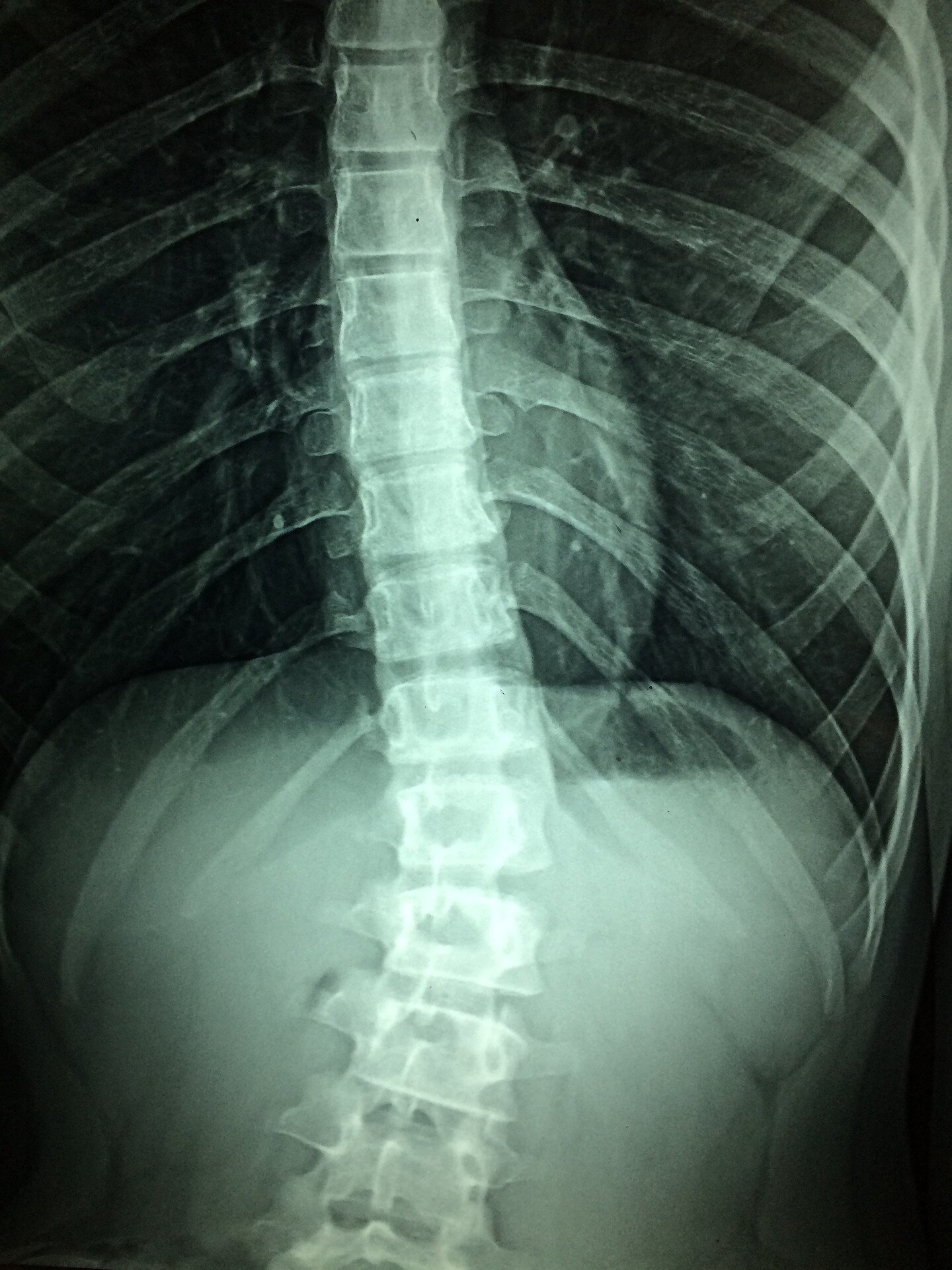Scientists regenerate neurons that restore walking in mice after paralysis from spinal cord injury::In a new study in mice, a team of researchers from UCLA, the Swiss Federal Institute of Technology, and Harvard University have uncovered a crucial component for restoring functional activity after spinal cord injury. The neuroscientists have shown that re-growing specific neurons back to their natural target regions led to recovery, while random regrowth was not effective.
Insurance: Nah we aren’t gonna cover it. And for some reason our economical opinion trumps your own doctors medical opinion.
This is actually one case insurance companies would be ALL OVER a real fix. People with spinal injuries have tons of medical complications that cost throughout their entire life. An insurance company would definitely be interested in unloading persistent fiscal drains like that.
Don’t get me wrong, the medical insurance industry is a fucking terror, especially in the US with the degree of regulatory capture involved. In this one case though, a real cure would serve their interests at anything less than a massive cost on their part.
If that’s the case, wouldn’t the same logic be applied to novel cancer treatments? Last time I checked those have a tendency to evaporate mysteriously, and insurance companies weren’t exactly stopping it.
Idk, just seams a little idealistic.
The only ideal that type of company has at its heart is the pursuit of profit. If they see a real cure that costs less than the long term “maintenance” care they would be all over it. If not, then not.
Novel cancer treatments aren’t a terribly good comparison in my opinion. Rarely does a single one in isolation offer a clear and permanent cure - though with any categorization that broad there are of course exceptions.
Hell, when scientists identify care that is likely enough to prevent the need of reactive treatment insurance companies often make it free to lower their overall costs - teeth cleaning and flu shots for example. That’s not altruism on their part, it’s economics.
The difference though is that this treatment would require hundreds of hours of ongoing work from medical professionals for each treatment. What they did was use single cell RNA sequencing to determine which subpopulations of cells are supposed to connect and where, before stimulating cell growth and guiding each RNA mapped subpopulation to where it’s roughly supposed to go. That’s one thing for anatomically complete sub-millimeter spinal cord injuries in mice, but a massive endeavor for human spinal cords.
If you’ve seen the bioengineered cancer treatments where researchers grow immune cells to target a single individual’s tumor, the amount of specialized work that goes into that pales to what current technology would require for this sort of spinal regeneration, and that’s for relatively simple small scale lesions. Multiple lesions or large scale cell death could result in attempting to selectively guide millions of microscopic axons in neat clusters for over a foot.
I wouldn’t be surprised if insurance companies refused to pay for cell regrowth, and instead went for implants that are comparatively much simpler to install and modify in brain-computer interfaces that skip over the damage. This is a great advancement and does open the door for recovering from spinal cord damage, but this is one of those treatments that people are going to get because they need to fill FDA trials and won’t charge, or because the patient is filthy rich.
deleted by creator
While that’s true, this isn’t a specific engineering problem. You need to grab a single cell from each relevant subcluster of neurons in the spinal cord, spatially record the exact positioning, send it off to have RNA seq. done, sample all of the subclusters of the target area, spatially record exact positioning, send it off to have RNA seq done, resample based off of RNA seq data, begin axon regrowth of a single subcluster, and then repeat after every growth cycle to ensure the targeting is holding.
You can improve RNA sequencing machines to reduce runtime, improve spatial tracking to make it easier to keep track of the anatomy, but without sci-fi advances in implant technology you can’t get around the sheer amount of procedural time requiring MD-PhDs and post docs to be involved in every visit.
One of the issues with medical technology is that we know far more about how the human body operates than we can control, so compared to biological structures our manipulation of biology at the cell specific level is relatively crude. I’m not saying tech won’t catch up, but it’s going to be ruinously involved for a very long time.
deleted by creator
Confused me for a second, because I just saw this about growing teeth, which is aiming for reaching market in 2030, which is relatively soon. So hopefully you’ll be able to see that before people start shoveling dirt at you.
deleted by creator
"Yeahhhhhh here’s the thing, a wheelchair costs fifty dollars, while the revolutionary treatment that will give you full use back is fifty ONE dollars…
So you see, there really is only one sensible option…" -every insurance company everywhere even if the prices were literal
But but… If I can get back to work I can make the $1 whilst also getting back into the workforce and by extention the tax base providing a lifetime of benefit to the public and keep my family out of poverty…
Denied.
What I’ve learned this means in practical terms is, “Wow! We are really good at healing mice!”
Well that’s great news for all the mice who can afford the treatment.
Yeah this treatment is only going to benefit the top 1% of mice in the end
I wonder if Basil would be rich enough…
deleted by creator
This is the right way to solve paralysis, not Elon-killing-monkeys.
Monkeys are the next step.
Well, probably dogs or cats first. But eventually monkeys.
“Professor: As a man enters his 18th decade, he thinks back on the mistakes he made in life. Amy: Like the heaps of the dead monkeys? Professor: Science can not move forward without heaps!”
180 years old?
Its a futurama quote
if only there were elon-killing-monkeys
I hope they eat well.
This was done by Courtines‘ Team in Switzerland not Musk.
Their comment was in relation to Neuralink being in the news about killing monkeys, recently, not attributing OP’s news to him.
I know, I’m referring to a separate story that used an implant to wirelessly transmit the signal to the spinal cord. They were killing a bunch of cats and monkeys as well for their research. But they approached this responsibly and got a working prototype that helped a patient to walk again: https://www.bbc.com/news/science-environment-65689580
Removed by mod
How many mice were killed before they got one “fixed”? And did they damage their spinal cords in the first place so they could have subjects to work on? Where do you find a supply of mice paralyzed by spinal cord injury to experiment on? Just saying
This is what privilege sounds like.
deleted by creator
deleted by creator

Not even an applicable anaology when we’re breeding and slaughtering rats on a mass scale. It’s not the difference choosing between the life of a rat and the well-being of a human. Animal testing is generally not even applicable to humans and just results in large amounts of death and suffering. Not even to mention the grotesque method artificial insemination of rats. We have better alternatives to animal testing like in vitro, animal testing is not necessary

Good point. Fixed it for you.
I genuinely don’t want to be hateful, but how do you expect stuff like this to be tested without hurting “some” animals. I’m not saying I agree with animal testing and if possible I’d rather them test it another way, but I do understand the importance of it. Without this lot’s of medications and treatments wouldn’t exist.
deleted by creator
In vitro cell cultures don’t have spinal cords. For stuff like this, you need the living animal. Also, fun fact, in order to aquire the cells to culture, you need to kill newborn rats.
Are you vegan?
No, are you?
Fuck animal testing
Animal testing has saved the lives of millions and improved billions. It’s gruesome, but necessary. Especially for research like this.
It does make you wonder what caused spinal injury in these mice. I do not suppose there is a sufficient natural supply of these kinds of injured mice.
But, if not animal testing, how do you propose to develop the treatment?
It’s a little grim, but there’s a standard SCI (spinal cord injury) guillotine that drops a weight with an angled wedge to cause a near perfectly replicable SCI. The mouse is sedated, but it’s not exactly a good time for the mouse.
But yeah, the alternative is testing on humans, which, I really don’t think we need a reminder on why that’s super illegal.
deleted by creator
People who value the lives of small rodents over the lives of fellow human beings should have their heads checked, because their moral compass is seriously out of whack.
deleted by creator
Their whole consciousness reduced down to moving forward and backwards in a toy car. Absolutely barbaric.
You’re making it sound like they did it for funsies, rather than important research. Also, link please, this sounds like a massive breakthrough.
deleted by creator
Are you vegan?










